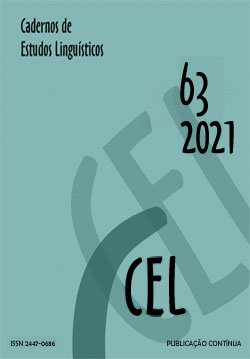Resumen
Dentro del marco de una teoría uniforme de las llamadas construcciones con se en español, me propongo derivar aquí una restricción que casi no ha recibido atención en la bibliografía previa. En concreto, siempre que una oración de control de sujeto tenga como controlador una instancia de se impersonal, la cláusula de infinitivo subordinada no puede contener ninguna otra instancia del clítico se con excepción del llamado se espurio (e.g., *Se intentó quejarse, *Se quiso criticarse, etc.). La fuente de esta restricción se sigue, según argumentaré, de un problema de legibilidad en la Forma Lógica producido, en concreto, por un intento fallido de aplicar Agree entre PRO y el se subordinado, que, como veremos, actúa como sonda para el movimiento-A. Si la explicación que ofrezco es correcta, se siguen también una serie de conclusiones teóricas que afectan directamente el modo en que debemos concebir el diseño de la operación Agree en la sintaxis y su efecto en la interfaz de Forma Lógica. En particular, el sistema tolera ciertas fallas de Agree (Preminger 2014) siempre y cuando no afecte cierto tipo de efectos de legibilidad en la semántica. En efecto, la teoría de las construcciones con se que aquí asumo deriva la distinción entre se paradigmático y no paradigmático como el resultado de aplicaciones exitosas o fallidas de Agree, respectivamente. El límite de esta tolerancia a aplicaciones fallidas de Agree está en el tipo de objeto semántico que puede deducirse en la Forma Lógica. Dicho límite se ilustra aquí con la mencionada restricción en contextos de control y se impersonal que motiva el presente estudio.
Citas
BOECKX, Cedric, Norbert Hornstein and Jairo Nunes. 2010. Control as movement. Cambridge: Cambridge University Press.
CHIERCHIA, Gennaro. 2004. A semantics for unaccusatives and its syntactic consequences. In A. Alexiadou, E. Anagnostopoulou and M. Everaert (Eds.), The unaccusativity puzzle: Explorations of the syntax-lexicon interface, 22-59. Oxford: Oxford University Press.
CHOMSKY, Noam. 1981. Lectures on government and binding. Dordrecht: Foris.
CHOMSKY, Noam. 1995. The minimalist program. Cambridge, Mass.: MIT press.
CHOMSKY, Noam. 2000. Minimalist inquiries: The framework. In R. Martin, D. Michaels, and J. Uriagereka (eds.), Step by step: Essays on minimalist syntax in honor of Howard Lasnik, 89-156. Cambridge, Mass.: MIT Press.
CHOMSKY, Noam. 2001. Derivation by phase. In M. Kenstowicz (ed.), Ken Hale: A life in language, 1-52. Cambridge, Mass.: MIT Press.
CINQUE, Guglielmo. 1988. On si constructions and the theory of arb. Linguistic Inquiry 19: 521-581.
DOBROVIE-SORIN, Carmen. 1998. Impersonal se constructions in Romance and the passivization of unergatives. Linguistic Inquiry 29(3): 399-437.
HEIM, Irene. 1982. The semantics of definite and indefinite noun phrases. Phd diss., University of Massachusetts at Amherst.
HEIM, Irene and KRATZER, Angelika. 1998. Semantics in Generative Grammar. Malden, Mass.: Blackwell.
HORNSTEIN, Norbert. 1999. Movement and control. Linguistic Inquiry 30: 69-96.
LANDAU, Idan. 2000. Elements of control: Structure and meaning in infinitival constructions. Dordrecht: Kluwer.
LANDAU, Idan. 2004. The scale of finiteness and the calculus of control. Natural Language and Linguistic Theory 22: 811-877.
MACDONALD, Jonathan E. and VÁZQUEZ-LOZARES, Almike. 2020a. On (un)grammatical sequences of ses in Spanish. To appear in Selected Proceedings of LSRL 48. Amsterdam: John Benjamins.
MACDONALD, Jonathan E. and VÁZQUEZ-LOZARES, Almike. 2020b. Spanish impersonal se in control infinitivals and the ungrammaticality of se se sequences. To appear in East and West of The Pentacrest: Linguistic Studies in Honor of Paula Kempchinsky.
MARTINS, Ana María and NUNES, Jairo. 2017. Identity avoidance with reflexive clitics in European Portuguese and the theory of control. Linguistic Inquiry 48:4. 627-649.
MENDIKOETXEA, Amaya. 2008. Clitic impersonal constructions in Romance: Syntactic features and semantic interpretation”. In A, Siewierska (Ed.), Impersonal constructions in grammatical theory. Special Issue of the Transactions of the Philological Society, 106(2): 290-336.
ORMAZABAL, Javier and ROMERO, Juan. 2019. The formal properties of non-paradigmatic se. Borealis: An International Journal of Hispanic Linguistics 8(1): 55-84.
ORMAZABAL, Javier and ROMERO, Juan. 2020. Deconstructing se constructions: number agreement and post-syntactic variation. Ms., Universidad del País Vasco y Universidad de Extremadura.
PESETSKY, David and TORREGO, Esther. 2001. T-to-C movement: Causes and consequences. In Michael Kenstowicz (ed.), Ken Hale: A Life in Language, 355-426 Cambridge, Mass.: MIT press.
POSTAL, Paul and PULLUM, Geoffrey. 1988. Expletive noun phrases in subcategorized positions. Linguistic Inquiry 19(4): 635-670.
PREMINGER, Omer. 2014. Agreement and its failures. Cambridge, Mass.: MIT press.
PUJALTE, Mercedes. 2012. Argumentos (no) agregados. Indagaciones sobre la morfosintaxis de la introducción de argumentos en español. Phd diss., University of Buenos Aires.
PUJALTE, Mercedes and SAAB, Andrés. 2012. Syncretism as PF-repair: The case of se-insertion in Spanish. In María Cristina Cuervo and Yves Roberge (Eds.) The end of argument structure?, Syntax and Semantics 38, 229-260. Bingley: Emerald.
PUJALTE, Mercedes and SAAB, Andrés. 2014. Sobre la interacción entre caso y concordancia en impersonales y pasivas con se. In Ángela Di Tullio (Ed.) Variaciones gramaticales del español rioplatense. Traslaciones. Revista latinoamericana de lectura y escritura 1(1): 30-55.
PYLKKÄNEN, Liina. 2008. Introducing arguments. Cambridge, Mass.: MIT press.
SAAB, Andrés. 2002. Asignación de caso nominativo en construcciones con se impersonal. In Actas del IX Congreso de la Sociedad Argentina de Lingüística (CD-ROM). ISBN 987-9280-91-1.
SAAB, Andrés. 2014. Syntax or nothing. Some theoretical and empirical remarks on implicit arguments. Borealis: An International Journal of Hispanic Linguistics 3(2): 125-183.
SAAB, Andrés. 2015. On long-distance theta-role assignment. Lingua 160: 91-126.
SAAB, Andrés. 2020. Deconstructing Voice. The syntax and semantics of u-syncretism in Spanish. Glossa: a journal of general linguistics 5(1): 127. 1-50. DOI: https://doi.org/10.5334/gjgl.704.
SAAB, Andrés. 2021. From pronouns to probes. A theory for a subset of Spanish clitics. Ms., IIF-SADAF-CONICET.

Esta obra está bajo una licencia internacional Creative Commons Atribución-NoComercial 4.0.
Derechos de autor 2021 Cadernos de Estudos Linguísticos


